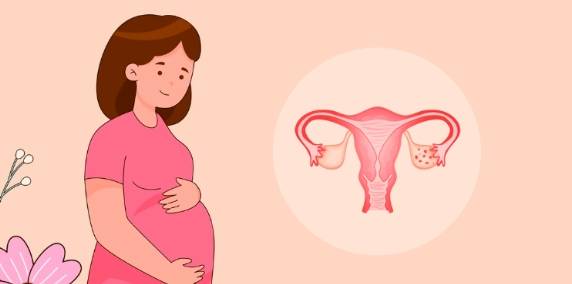Polycystic ovary syndrome (PCOS) is a common gynecological disease caused by a combination of genetic and environmental factors. In addition to affecting health, PCOS can also lead to infertility in women of childbearing age.
Does a diagnosis of PCOS mean that one will definitely be infertile? If someone with PCOS wants to conceive, can they directly induce ovulation to assist with pregnancy?
Is it impossible to conceive with PCOS?
PCOS is an endocrine disorder characterized primarily by infrequent or absent menstruation and elevated androgen levels. However, women with regular menstrual cycles can also be patients with PCOS.
The impact of PCOS on pregnancy primarily involves two aspects:
1. Follicular development in women is influenced by endocrine regulation, so PCOS can affect the normal development, maturation, and release of eggs, leading to infertility.
2. The elevated androgen levels in patients with PCOS may lead to male-like characteristics (such as hirsutism), which can also result in sexual dysfunction in women, negatively impacting conception.
PCOS can cause infertility, but the relationship between the two is not absolute. Also, even if infertility occurs due to PCOS, as long as timely and appropriate treatment is received, the vast majority of patients can conceive and give birth.
When trying to conceive with PCOS, one should not blindly “induce ovulation.”
Ovulation induction is a treatment that stimulates the simultaneous development of multiple follicles through medication or other therapies to increase the chances of conception, and it is one of the common methods used to help patients with PCOS achieve pregnancy.
Although ovulation induction is an effective way to assist with conception, not all patients with PCOS will be able to conceive through this method.
Patients with PCOS who wish to have children should first clarify the severity of their condition before proceeding with targeted fertility treatments.
Ovulation induction treatment is generally carried out when PCOS patients have not resumed spontaneous ovulation despite lifestyle changes, anti-androgen treatments, and improvements in insulin resistance.
If there is poor follicular development accompanied by thickened capsules in cases of severe PCOS, laparoscopic ovarian drilling or wedge resection should be performed first to clear the pathway for egg release before proceeding with ovulation induction treatment, increasing the chance of pregnancy.
It is particularly important to note that ovulation induction must be conducted under the guidance of professional physicians and should not be attempted blindly; otherwise, it may not only fail to achieve the desired effect but could also harm the body and ovaries due to excessive medication and blind induction.
While undergoing ovulation induction to assist with conception, two important tasks should be completed:
Monitor Ovulation Effectively
During ovulation induction treatment, patients need to monitor their ovulation closely so they can understand the status of follicular development in a timely manner, which helps determine whether adjustments to medication dosage and timing are necessary.
Additionally, understanding ovulation helps capture the “fertile period,” which greatly increases the chances of conception.
Lifestyle Interventions
Research evidence suggests that interventions in lifestyle (diet and exercise) to reduce weight can help improve symptoms such as insulin resistance and excessive androgens. Some patients may restore ovulation and become pregnant normally, which is also beneficial for a smoother experience during pregnancy and childbirth.
Therefore, while undergoing ovulation induction treatment, lifestyle interventions are also essential for patients with PCOS. During treatment, it is important to eat a balanced diet, exercise moderately, maintain adequate sleep, and cultivate a positive mindset to develop good habits.


